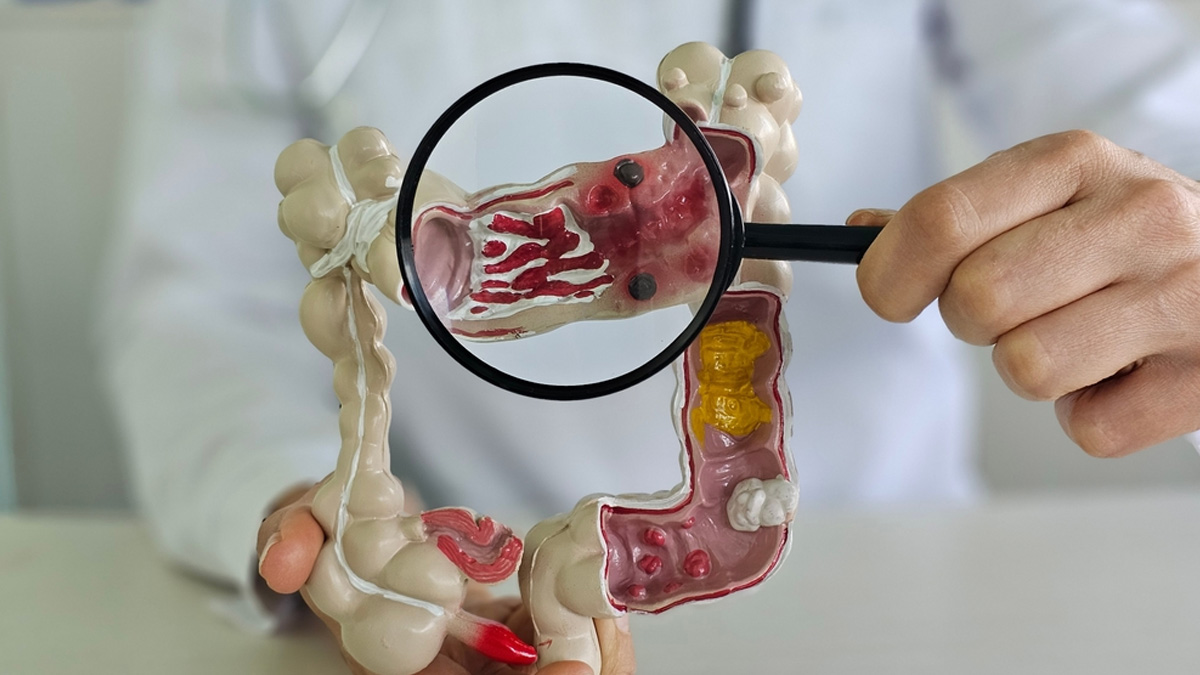Bloating is a common digestive issue affecting people of all ages, however, the experience becomes more frequent and severe if you are diagnosed with a condition known as Ulcerative Colitis (UC). It is a chronic Inflammatory Bowel Disease (IBD), affecting the large intestine, also known as the colon. Bloating occurs when inflammation and ulcers affect the digestive process. Although bloating isn't directly associated with UC, inflammation, food triggers, and an imbalanced gut bacteria often occur with it. We spoke to Dr Rituja Ugalmugle, Internal Medicine, Wockhardt Hospitals, Mumbai Central, who explained the link between bloating and ulcerative colitis and how to manage it.
Causes of Bloating in Ulcerative Colitis

- Colon Inflammation: "UC causes the intestines to become inflamed and swollen. This can slow down the digestive process and interfere with the normal movement of food and gas through the intestines," said Dr Ugalmugle. Gas accumulates during digestion when food takes longer to break down and pass through, resulting in bloating and discomfort.
- Dysbiosis in the Gut: A healthy gut contains a balanced mix of good and bad bacteria that aid digestion. The poor balance of the gut microbes of people with UC translates into excessive gas production and bloating.
- Food Intolerances: "Dairy, high-fibre vegetables, and carbonated beverages worsen bloating in people with UC. These foods can be harder to digest, leading to increased fermentation in the gut and more gas production," added Dr Ugalmugle.
- Slow Digestion: During UC flare-ups, digestion may slow down significantly. This delayed food movement through the digestive tract can lead to constipation, which further traps gas and causes bloating.
How To Manage Bloating With Ulcerative Colitis
Ulcerative colitis affects a significant number of people worldwide. According to StatPearls, the condition is diagnosed in 9-20 people out of every 1,00,000 each year. Additionally, it's estimated that 156-291 people out of every 1,00,000 live with ulcerative colitis at any given time.
Change Your Diet
-1739339123556.jpg)
"You should avoid foods high in fibre and causing gas, such as beans, cruciferous vegetables, and carbonated drinks," advised Dr Ugalmugle. Instead, opt for easily digestible low-FODMAP foods. FODMAPs are types of carbohydrates, specifically short-chain sugars, that can be difficult for some people to digest. They include fermentable oligosaccharides, disaccharides, monosaccharides, and polyols.
According to the National Institutes of Health, people with UC can benefit from a well-rounded, nutrient-rich diet. This approach can help alleviate symptoms and replenish essential nutrients lost due to the condition.
Hydration
Another way to manage bloating due to UC is by drinking enough water. Staying hydrated keeps the intestines running fluently and prevents bloating.
Also Read: Suffering From Ulcerative colitis? Here Are Its Symptoms And Treatment Methods
Eat Small Portions

"It is important to eat food in small portions to reduce the burden on your gut instead of eating large meals in one go. Also, remember to chew your food well to reduce the air swallowed while eating," said Dr Ugalmugle.
Probiotics and Gut Health
Probiotics help stabilise the good and bad bacteria in the gut, reducing the chance of bloating. It also helps reduce inflammation, improve gut motility, and modulate gas production.
Manage Stress
Stress does not directly trigger UC, however, it can worsen symptoms by increasing frequency and severity during flare-ups. Hence, engage in stress-reducing activities like yoga, meditation, and deep breathing to avoid bloating.
[Disclaimer: This article contains information provided by an expert and is for informational purposes only. Hence, we advise you to consult your professional if you are dealing with any health issue to avoid complications.]
How we keep this article up to date:
We work with experts and keep a close eye on the latest in health and wellness. Whenever there is a new research or helpful information, we update our articles with accurate and useful advice.
Current Version